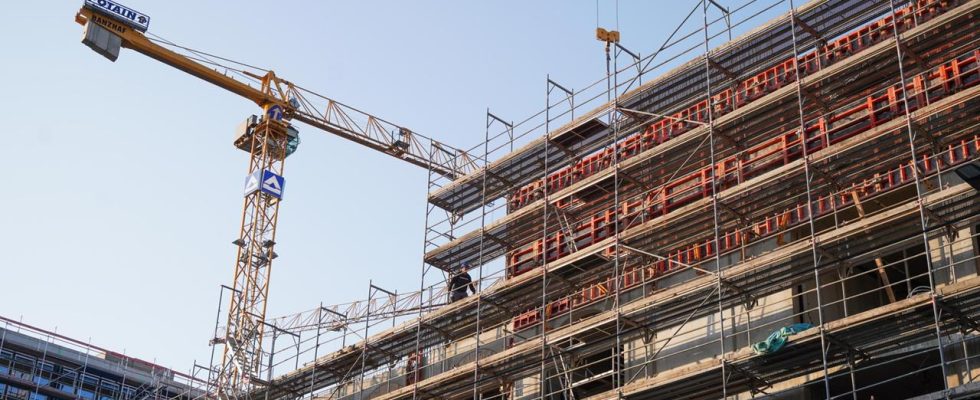The federal government is lagging far behind its own goals in social housing construction. A new study concludes that billions of euros are being spent incorrectly. Associations are calling for a change of course.
According to the “Social Housing” alliance, there is a lack of more than 910,000 social housing units in Germany. The association of tenants’ association, construction union and social and industry associations relies on a study by the Pestel Institute, which was commissioned by the alliance. New social housing primarily benefits people with low incomes.
According to the study, there were around 1.088 million social housing units in Germany at the end of 2022. The alliance believes it is necessary for two million social housing units to be available nationwide by 2030. That would roughly correspond to the status from 2007. The federal and state governments have massively neglected the funding of such residential units, criticized “Soziales Wohnen”.
Alliance demands Tax relief in new buildings
The federal government has set itself the goal of creating 100,000 new social housing units every year. In order to achieve this, the alliance believes that the federal and state governments should immediately provide 50 billion euros to promote social housing. In addition, the VAT on new construction of social housing should be reduced from 19 to seven percent.
In their coalition agreement, the SPD, Greens and FDP aimed to build 400,000 new apartments annually, a quarter of which should consist of social housing. According to the “Social Housing” alliance, only around 30,000 social housing units were completed in 2023, compared to around 25,000 in previous years.
There are particularly many missing here Social housing
The government admitted last year that it would miss this self-imposed target. The consequences of the war in Ukraine, but also a shortage of building materials, a shortage of skilled workers and increased interest rates were cited as reasons.
According to the new study, there is a particularly large lack of social housing – in absolute numbers – in Baden-Württemberg (around 206,000 apartments), Bavaria (around 195,000), Berlin (around 131,000) and Lower Saxony (around 109,000). Hamburg and North Rhine-Westphalia, on the other hand, are doing comparatively well with around 4,400 and 4,500 missing social housing units respectively.
“More and more state subsidies lead to nowhere”
“The situation on the housing market is getting worse: rising rents, hardly any new construction and no improvement in sight,” said Lukas Siebenkotten, President of the German Tenants’ Association. Solving the crisis with ever higher state subsidies for housing would lead nowhere.
In total, according to the study organizers, in 2023 the state spent more than 20 billion euros for the first time on supporting people in need with housing: a good 15 billion euros for the costs of accommodation, which are mainly paid by the job centers, and more than five billion euros for housing benefit. In contrast, federal and state spending on social housing has been around four billion euros per year in recent years, according to the study.
Criticism: State promotes “disproportion”
“Social spending on housing is eight times as high as the funding for the construction of new social housing,” said study leader Matthias Günther from the Pestel Institute. The reason for the “clear disparity” is the federal government’s long-standing mismanagement. “Until recently, he reduced social housing construction – i.e. property subsidies – to a minimum and thus provoked drastically increasing expenditure on the costs of accommodation and for housing benefit – i.e. for subject subsidies.”
Social housing is characterized by the fact that its rents are regulated by the state. They are only available to people who the authorities see as having particular need because they have low incomes. After a certain period of time, the apartments can be rented out normally on the market, which is why the number of social housing units has steadily decreased in recent years.

